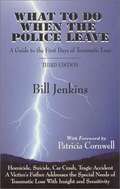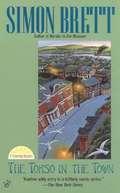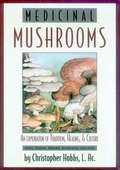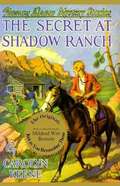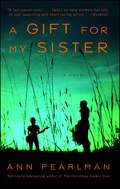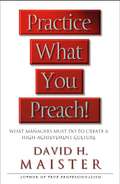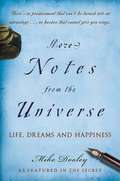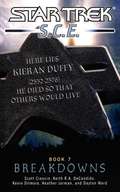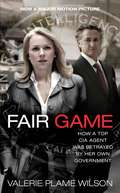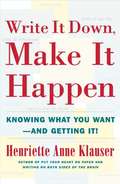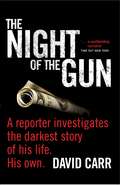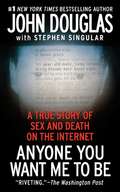- Table View
- List View
Desperate Obsession
by Anji NolanJake Fowler, a special branch detective at London's Heathrow airport, has always loved his best friend, Alex Mack, a Europa passenger agent. But before he declares himself, she falls for Tayo Vera Cruz, a charismatic pilot who uses his sexual prowess to persuade unsuspecting women into a web of smuggling and deceit.Jake suspects Vera Cruz is a courier for a terrorist organization and tries to warn Alex, but she sees his interference as jealousy. As she unknowingly becomes embroiled in Vera Cruz's smuggling operation, Jake discovers she is being set up. He has to convince her of the pilot's real intentions before she's in too deep to get out.Sensuality Level: Sensual
What to do When the Police Leave: A Guide to the First Days of Traumatic Loss (Third Edition)
by Bill JenkinsViolent death. . . the fear and legacy of our society. When a family is plunged into this nightmare, there are very few places to turn for assistance and guidance. This book is filled with simple, frank, and useful advice vital to families suffering a traumatic loss. Bill Jenkins' sixteen-year-old son was murdered on his second night of work at a restaurant. As one who has been there, he shares expert advice, lists helpful resources, de-mystifies legal and medical jargon and offers hope in the midst of tragedy.
The Torso in the Town (Fethering Mystery #3)
by Simon BrettAfter an uninvited guest-an armless and legless torso-crashes a dinner party, Jude enlists Carole's help to investigate the present and past owners of Pelling House, where the torso turned up.
Mother Ghoul's Curses and Rhymes
by Sondi MillerMother Ghoul's Curses and Rhymes is a collection of Monsters' myths and legends that has been obtained at great risk to the author's life for the benefit of a ghoulish posterity. These poems are read at the bedsides of all monsterlings to keep their traditions of history and nightmares alive. Not recommended for Human Children under 13 years of age. Read it at your own risk. I dare you!
Candles on Bay Street
by K. C. McKinnon[from the back cover] "Most of us fondly remember the joy of falling in love for the first time. For Sam Thibodeau, that feeling began the day Dee Dee Michaud beat up the bully who picked on him in the third grade. For years, Sam and Dee Dee were inseparable. Until the day after high school graduation when Dee Dee ran off with another man--the same day Sam was going to ask her to be his steady. Sam hasn't seen her since. Nor has he forgotten her. So he's not prepared when years later, Dee Dee returns home with her young son. Sam is happily married, yet he cannot deny he still has feelings for her. Dee Dee settles back into smalltown life and starts a successful candle-making business. But something is terribly wrong, and Dee Dee is about to ask of Sam what she could ask of no ordinary friend, forcing him to make a decision that will change his life. In this exquisitely crafted novel, K.C. McKinnon once again captures the comforting joys of friendship and the glory of love in its many guises."
Medicinal Mushrooms: An Exploration of Tradition, Healing and Culture
by Christopher HobbsMedicinal Mushrooms is a modern handbook for exploring and understanding the rich traditions of healing fungi in Eastern and Western cultures. Author Christopher Hobbs thoroughly documents and details the nutritional and health benefits of over 100 species of edible fungi. Here is the most complete work on the cultural, health-promoting, and medicinal uses of mushrooms ever published!
The Healthy Hedonist Holidays
by Myra KornfeldHolidays are a time for family and friends to gather for mouthwatering meals, but catering to every guest's dietary requirements can be a challenge. The menus in The Healthy Hedonist Holidays will entice every guest -- vegetarian, semi-vegetarian, carnivores, omnivores who can't eat dairy, and people who just love good food -- with delicious, satisfying "flexitarian" meals. Featuring fresh seasonal ingredients, whole grains, natural sugars, and creative seasonings, these flavorful feasts will leave guests feeling satisfied -- without the guilt that usually accompanies holiday indulgence. Each menu offers both a vegetarian and fish or poultry main course, and a range of side dishes, appetizers, and desserts that can be used in any combination to accommodate individual tastes. Myra Kornfeld's recipes honor America's diverse cultural and ethnic heritage. Even if you're not of Chinese descent, sit down to Sesame Noodles with Wilted Nappa Cabbage and Crispy Five-Spice Tofu with Black Bean Sauce. The traditional flavors of Thanksgiving take on a southwestern flair with a maple sugar-brined turkey accompanied by Mole Gravy with Dried Plums and Ancho Chiles. The Feast of Eid al Fitr explores the flavors of Turkey and Morocco with Chicken Breasts Stuffed with Onions, Cinnamon, Almonds, and Cherries, and Semolina Walnut Cake with Macerated Oranges. A Passover dinner offers herb-flecked matzo balls in a vibrant green spinach soup and a fish terrine studded with asparagus. Christmas dinner turns to the shores of Italy for inspiration with Flounder Roll-ups with Pistachio Pesto and Squash-Portobello Lasagna. With sections on ingredients, techniques, and a cooking plan for each menu, The Healthy Hedonist Holidays is a book to use, to give, and to savor, over and over again.
The Secret of Shadow Ranch (Nancy Drew Mystery Stories #5, Original Version)
by Carolyn KeeneNancy and her buddies travel to Arizona to help evaluate a run-down ranch and possibly help ready it for sale. Once in Arizona, Nancy uncovers a strange mystery about a kidnapped child. Follow their mishaps, multiple rides they get lost on, and an odd cast of characters leading to a most unlikely reunion. This is a facsimiled edition of the original volume; story line is not to be confused with later condensed, updated versions.
The Road to Home
by Vartan GregorianIn this humorous, learned, and moving memoir, Vartan Gregorian recounts his journey from an impoverished childhood as a Christian Armenian in Muslim Tabriz to cultured citizen of the world. Gregorian's odyssey begins in an obscure poor quarter of a provincial city (thought by some to be the location of the Garden of Eden). Childhood centered on his brilliant, beloved, illiterate grandmother who taught him so much, the beauty of Church, school, American movies, and the larger world he read about in his borrowed books. From there, he continued on to a Beirut lycée, Stanford University, and the presidencies of the New York Public Library, Brown University, and Carnegie Corporation. Like Jimmy Carter in An Hour Before Daylight, and in the tradition of Nabokov, Jill Ker Conway, and V. S. Naipaul, he tells us that education is an openness to everything, and describes his public and private life as one education after another. This is a love story about life.
Brimstone Kiss
by Carole Nelson DouglasDelilah and her partner - tall, dark, handsome, and Hispanic ex-FBI guy Ric Montoya - are busy solving a "Romeo and Juliet" double-murder and she's got plenty more to deal with: vampires, werewolves, and tigers, oh my!
A Gift for My Sister
by Ann PearlmanAnn Pearlman's The Christmas Cookie Club enthralled readers everywhere with a heartwarming and touching story about the power of female friendship. Now, in A Gift for My Sister, she once again explores the depth of the human heart, and this time it's through the eyes of two sisters. Tara and Sky share a mother, but aside from that they seem to differ in almost every way. When a series of tragedies strikes, they must somehow come together in the face of heartbreak, dashed hopes, and demons of the past. The journey they embark on forces each woman to take a walk in the other's shoes and examine what sisterhood really means to them. It's a long road to understanding, and everyone who knows them hopes these two sisters can find a way back to each other.ara's musical co-horts, gets thrown together and must caravan across the United States during the rap crew's cross-country tour.Along the way we meet a number of interesting characters. The tensions between the two sisters erupt when in the middle of their fighting, a near drowning incident forces them to confront their feelings and their issues, with the outcome uncertain.
Practice What You Preach
by David H. MaisterFirms that are perceived by their employees to actually practice what they preach are more financially successful than their competitors, says consultant David H. Maister, based on a worldwide survey of 139 offices in 29 professional service firms in 15 countries in 15 different lines of business. Maister asked the simple question: Are employee attitudes correlated with financial success? The answer, he found, was "an unequivocal 'Yes!'" Further, the author shows that high levels of employee commitment and dedication "cause(yes, cause) a demonstrable, measurable improvement in financial performance. " Maister proves that if your firm doesn't promote enthusiasm and high morale in your employees, your firm will make less money. So, how can you create a culture in your firm that promotes growth and superior financial returns? Maister discovered that the most successful firms surveyed excelled by doing well on things to which most, if not all, firms pay only lip service: commitment to clients, teamwork, high standards, employee development, and other familiar topics. However, what distinguishes the best from the rest is that the best live up to their own standards. Digging deeper by conducting in-depth interviews with managers and employees of the firms he surveyed, Maister has found that the key to success is not the systems of the firm, but the character and skills of the individual manager. He explores in detail the central role of the manager (what he or she must be, must do, and must require of others). The reader will find specific action recommendations from the managers and employees of these "superstar" businesses on how to build an energized workplace, enforce standards of excellence, develop people, and have fun -- all as powerful profit improvement tactics. Practice What You Preach can help any manager increase firm growth and profitability, and will provide proof to firm executives that great financial rewards come from living up to the high standards that most businesses advocate, but few achieve.
The Return of the Prophet
by Hajjar GibranIn the tradition of the beloved masterpiece The Prophet, Hajjar Gibran -- an ancestral descendant of Kahlil Gibran -- presents a parable of spiritual awakening based on his often heartbreaking and ultimately triumphant life. With its universal themes, personal narrative, and timeless advice, The Return of the Prophet opens the doorway to a new generation's classic, and a modern understanding of timeless spiritual wisdom. Hajjar recalls an intimate, spiritual connection with the Prophet while journeying together through the themes of abundance, betrayal, desire, forgiveness, and others. Stunning charcoal illustrations throughout give readers a glimpse into the visions Hajjar experienced during his troubled past.
Even More Notes from the Universe
by Mike DooleyProminent contributor to The Secret, Mike Dooley offers more insightful, entertaining messages to amuse and inspire you. While the first book spoke primarily about new beginnings, and the second book's focus was about traditions, Even More Notes from the Universe speaks on the theme of change, growth and decision-making. Many of the notes echo the overarching theme of personal empowerment, giving readers the help from the cosmos that most of us have needed at one point or another. But throughout the third book, Mike Dooley shares his philosophy of change - when you come to the point in your life where you have a choice between doing what you want to do, and what you have to do, always do what you want, he says. What started in 1998 as a little poem sent out once a week to a handful of email addresses has evolved into an inspiring anecdote delivered to over 150,000 subscribers from 169 countries. Mike Dooley serves as an interpreter for the Universe. Notes from the Universe: Book 3 is the third and final book in the three-volume set that is brimful with powerful affirmations that will have you thinking positively, feeling confident, and walking the path to personal success. When readers discover the truths the Universe is unveiling, they will begin living happier, more fulfilling lives.
More Notes from the Universe
by Mike DooleyProminent contributor to The Secret, Mike Dooley offers more insightful, entertaining messages to amuse and inspire you. While the first book spoke primarily about new beginnings, and the second book's focus was about traditions, Even More Notes from the Universe speaks on the theme of change, growth and decision-making. Many of the notes echo the overarching theme of personal empowerment, giving readers the help from the cosmos that most of us have needed at one point or another. But throughout the third book, Mike Dooley shares his philosophy of change - when you come to the point in your life where you have a choice between doing what you want to do, and what you have to do, always do what you want, he says. What started in 1998 as a little poem sent out once a week to a handful of email addresses has evolved into an inspiring anecdote delivered to over 150,000 subscribers from 169 countries. Mike Dooley serves as an interpreter for the Universe. Notes from the Universe: Book 3 is the third and final book in the three-volume set that is brimful with powerful affirmations that will have you thinking positively, feeling confident, and walking the path to personal success. When readers discover the truths the Universe is unveiling, they will begin living happier, more fulfilling lives.
Ingrid
by Charlotte ChandlerIngrid Bergman was one of the biggest and most glamorous stars in Hollywood. She had starred in several now-classic films: Casablanca, Spellbound, Notorious, Gaslight; and her co-stars included such icons as Humphrey Bogart, Cary Grant and Gregory Peck. Already a movie star in her native Sweden, Ingrid Bergman became an instant sensation in Hollywood and the number one box-office star in the world. But the most dramatic event in her life took place off the screen when she made a film in Italy and began a passionate affair with her director, Roberto Rossellini. The scandal that followed left her exiled from America, ostracized from Hollywood, vilified by the press and separated from her young daughter. In the words of those who were involved, Chandler describes Bergman's life before, during and after the scandal. Among those Chandler spoke with were Alfred Hitchcock, George Cukor, Cary Grant and Greta Garbo. She also spoke with Roberto Rossellini, their twin daughters, Isabella and Isotta Ingrid, Rossellini's son Renzo, Ingrid's daughter Pia Lindstrom and others who knew Ingrid well. This extraordinary access makes INGRID: A PERSONAL BIOGRAPHY the most perceptive and revealing book ever written about the charismatic Hollywood legend.
She Always Knew How
by Charlotte ChandlerInShe Always Knew How, her wonderful new biography of legendary actress Mae West, acclaimed biographer Charlotte Chandler draws on a series of interviews she conducted with the star just months before her death in 1980. From their first meeting, where West held out a diamond-covered hand in greeting and lamented her interviewer's lack of jewels, to their farewell, where the star was still gamely offering advice on how to attract men, Mae West and Charlotte Chandler developed a warm rapport that glows on every page of this biography. Actress, playwright, screenwriter, and iconic sex symbol Mae West was born in New York in 1893. She created a scandal -- and a sensation -- on Broadway with her play Sex in 1926. Convicted of obscenity, she was sentenced to ten days in prison. She went to jail a convict and emerged a star. Her next play, Diamond Lil, was a smash, and she would play the role of Diamond Lil in different variations for virtually her entire film career. In Hollywood she played opposite George Raft, Cary Grant (in one of his first starring roles), and W. C. Fields, among others. She was the number one box-office attraction during the 1930s and saved Paramount Studios from bankruptcy. Her films included some notorious one-liners -- which she wrote herself -- that have become part of Hollywood lore: from "too much of a good thing can be wonderful" to "When I'm good, I'm very good. When I'm bad, I'm better. " Her risqué remarks got her banned from radio for a dozen years, but behind the clever quips was Mae's deep desire, decades before the word "feminism" was in the news, to see women treated equally with men. She saw through the double standard of the time that permitted men to do things that women would be ruined for doing. Her cause was sexual equality, and she was shrewd enough to know that it was perhaps the ultimate battleground, the most difficult cause of all. In addition to her extensive interviews of Mae West, Chandler also spoke with actors and directors who worked with and knew the star, the man with whom she lived for the last twenty-seven years of her life, as well as her closest assistant at the end of her life. Their comments and insights enrich this fascinating book. She Always Knew Howcaptures the voice and spirit of this unique actress as no other biography ever has.
Hello, I Must be Going
by Charlotte ChandlerWhen Charlotte Chandler called Groucho Marx for an interview, he answered the phone himself. Declining to be interviewed, he invited her over to his house so he could tell her no in person. After talking with her for hours, Groucho asked, "Why aren't you writing?" Hello, I Must Be Going is the story of Groucho and the Marx Brothers, told through Groucho's everyday conversations with Charlotte Chandler and his friends. And what a group of friends they were! Woody Allen, Jack Nicholson, Elliott Gould, Bill Cosby, Marvin Hamlisch, Betty Comden, Adolph Green, Sidney Sheldon, and dozens of others walk through the pages of this fascinating book. Anyone interested in Groucho or the Marx Brothers, or who wants to spend a few hours in fabulous company, will find this book irresistible.
Not the Girl Next Door
by Charlotte ChandlerAs Charlotte Chandler did so well in her previous biographies, she will again draw on the recorded words of Joan Crawford and those who knew her well to paint a rich portrait of the woman and the star. Joan Crawford was born Lucille LeSueur in Texas in 1908. She became a chorus girl in silent films before finding her voice in Possessed (1931) with Clark Gable. Their affair would continue, on and off screen, for many years. Throughout the thirties, Joan continued to earn critical acclaim for her forte of playing career women who never gave up. Her Oscar-winning film Mildred Pierce in 1945 began the long-running feud between Joan and Bette Davis, which reached its height with Whatever Happened to Baby Jane in 1962. Joan was married four times including once to Douglas Fairbanks Jr, who spoke extensively to Charlotte Chandler for this book. Following her death, Joan's decision to cut her eldest children out of her will prompted her daughter Christina to write the damning book Mommie Dearest which changed Joan's image forever. Charlotte Chandler spent many hours recording interviews with Joan and also those closest to her. What emerges is a subtle portrait of a complex women and a new insight into the legendary actress.
Breakdowns
by Keith R. A. Decandido Scott Ciencin Dayton Ward Kevin Dilmore Heather JarmanA TURNING POINT FOR THE STARFLEET CORPS OF ENGINEERS! After the catastrophic events ofWildfire,the S. C. E. crew of the U. S. S. da Vinciis in disarray. Half of the ship's complement were killed at Galvan VI, and the survivors must put their lives back together. Corsi, accompanied by Stevens, tries to make amends with her long-estranged father. Abramowitz attempts to lose herself in her work, only to be confronted with an old rival -- and her own emotional fears. P8 Blue goes home to find her world confronting a crisis that threatens the Nasat's very existence. But it is Captain Gold and Commander Gomez who face the most difficult trials, as they find the road to recovery a difficult one. Each confronts demons from the past and the uncertainty of the future, leading to a bitter confrontation from which neither may ever truly recover. . . .
Fair Game
by Valerie Plame WilsonOn July 6, 2003, four months after the United States invaded Iraq, former ambassador Joseph Wilson's now historic op-ed, "What I Didn't Find in Africa," appeared in The New York Times. A week later, conservative pundit Robert Novak revealed in his newspaper column that Ambassador Wilson's wife, Valerie Plame Wilson, was a CIA operative. The public disclosure of that secret information spurred a federal investigation and led to the trial and conviction of Vice President Dick Cheney's chief of staff, Scooter Libby, and the Wilsons' civil suit against top officials of the Bush administration. Much has been written about the "Valerie Plame" story, but Valerie herself has been silent, until now. Some of what has been reported about her has been frighteningly accurate, serving as a pungent reminder to the Wilsons that their lives are no longer private. And some has been completely false -- distorted characterizations of Valerie and her husband and their shared integrity. Valerie Wilson retired from the CIA in January 2006, and now, not only as a citizen but as a wife and mother, the daughter of an Air Force colonel, and the sister of a U.S. marine, she sets the record straight, providing an extraordinary account of her training and experiences, and answers many questions that have been asked about her covert status, her responsibilities, and her life. As readers will see, the CIA still deems much of the detail of Valerie's story to be classified. As a service to readers, an afterword by national security reporter Laura Rozen provides a context for Valerie's own story. Fair Game is the historic and unvarnished account of the personal and international consequences of speaking truth to power.
Write It Down, Make It Happen
by Henriette Anne KlauserTurn your dreams into reality by taking matters into your own hands. In Write It Down, Make It Happen, Henriette Anne Klauser, Ph. D. , explains how simply writing down your goals in life is the first step toward achieving them. Writing can even help you understand what you want. In this book, you will read stories about ordinary people who witnessed miracles large and small unfold in their lives after they performed the basic act of putting their dreams on paper. Klauser's down-to-earth tips and easy exercises are sure to get your creative juices flowing. Before you know it, you'll be writing your own ticket to success. You Can Find the perfect mate Buy your dream house Get a great new job Wake up happier Travel the world Have a better relationship with your teenage son
The Night of the Gun
by David Carr"New York Times" reporter and columnist Carr crafts a groundbreaking memoir on his years as an addict. Built on more than 50 videotaped interviews with people from his past, Carr's investigation of his own history reveals a past far more harrowing than he allowed himself to remember.
When God Winks
by Squire RushnellIt is not by accident that you just picked up When God Winks. Whether you call it synchronicity or coincidence, what brought you to this book today is worth remembering. In fact, you may have suspected all along that there is more to coincidence than meets the eye. These seemingly random events are actually signposts that can help you successfully navigate your career, relationships, and interests. SQuire Rushnell shows us that by recognizing our "God Winks," we can use the untapped power of coincidence to vastly improve our lives. The author applies his compelling theory as to why coincidences exist to fascinating stories in history, sports, medicine, and relationships involving both everyday and famous people including Barbra Streisand, Charles Schulz, Oprah Winfrey, Kevin Costner, Mark Twain, and Presidents John Adams and Thomas Jefferson.
Anyone You Want Me to Be
by Stephen Singular John DouglasJOHN DOUGLAS -- THE BESTSELLING AUTHOR OF MINDHUNTER AND THE UNDISPUTED MASTER PROFILER OF SERIAL CRIMINALS -- TELLS THE CHILLING TRUE STORY OF JOHN ROBINSON, THE INTERNET'S FIRST SERIAL MURDERER. In Olathe, Kansas, a balding, pudgy father of four sits in prison convicted on three counts of homicide -- two of capital murder -- and suspected in at least five other disappearances. During the last half of the 1990s, John Robinson exploited the Internet's active world of sadomasochism with horrific results. By haunting chat rooms, he pinpointed vulnerable women who were looking for romance and stalked them on-line, nefariously convincing them of his maturity, sensitivity, and financial stability. He seemed like the perfect man. He enticed these women with offers of a solid relationship and a lucrative job, persuading them to move to his hometown. Once they arrived in Kansas, the women invariably disappeared. After a dramatic trial and days of intense jury deliberation, Robinson now faces the death penalty. Disturbing as his crimes may be, what's most alarming is how he selected and lured his victims and how willingly they responded. John Robinson expanded the hunting ground, the techniques, and the technology of the sexual predator. He is the world's first-known Internet serial killer. Law enforcement officers, prosecutors, and the coauthors of Anyone You Want Me to Be have struggled to unravel the enigma that is John Robinson. They reveal what can go wrong in a world where relationships are devoid of physical contact, showing how easily mainstream Americans can be drawn into the dark underground of cybercrime. The Internet has drastically expanded the realm of fantasy -- from the limited confines of physical reality to the worldwide stage of virtual reality -- and anyone can become involved in an on-line seduction. Erotic fantasies, which were once socially off-limits and extremely private, are now instantly accessible. This rapidly growing community masks a sinister truth: With only a computer, an Internet connection, and a knack for creativity, criminals have the power to reach millions of unsuspecting victims while remaining in complete control of their own -- often false -- image. John Robinson was a true innovator in this variety of crime. Through interviews with law enforcement specialists, Web experts, and others, John Douglas and Stephen Singular illustrate, with this case, a much larger -- and more frightening -- pattern of Internet sex and violence. As technology proliferates in the twenty-first century, so do opportunities for enterprising criminals like John Robinson. No one is better equipped than John Douglas and Stephen Singular to expose the underworld of the Internet and to warn people about the dangers of cyberspace. A cautionary and educational tale about being wary of strangers and false intimacy, Anyone You Want Me to Be is also a terrifying, high-tech story of crime and punishment.

